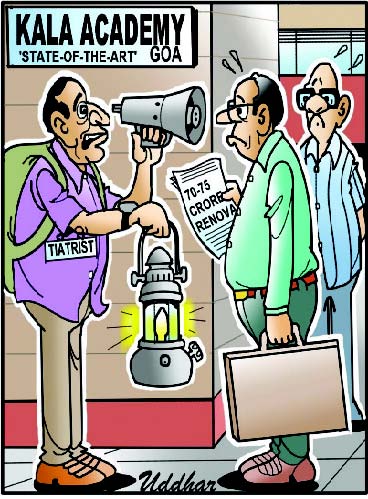The first phase of the Lok Sabha elections recorded about 64 percent voting. However, it was marred by violence. Firing and clashes at polling booths, the death of a CRPF jawan and allegations of tampering with EVMs affected the election process in Manipur, Chhattisgarh and West Bengal. In a small State like Manipur, which has been engulfed in violence for the past year, people came out to vote spontaneously. But despite strict security, incidents of violence took place in the State on Friday. As a result, on 22 April 22, re-polling had to be held at 11 polling stations in the Inner Manipur Lok Sabha constituency.
According to the Congress, there was booth capturing and rigging at 36 polling stations in Inner Manipur constituency and 11 polling stations in Outer Manipur constituency. In fact, the Election Commission has planned to hold this election in seven phases, not two or three, in order to make the election process smooth and ensure law and order with the available personnel. Despite the arrangement, violence occurred. Six incidents of attempts to capture polling booths at gunpoint have been reported in the State capital Imphal, an election official told the media on condition of anonymity. The same officials said that re-polling may be required at some booths as armed mobs came and tried to take control of the polling booths and vandalized some EVM machines. There was also an incident of firing between two armed groups in Manipur’s Bishnupur District.
In fact, election campaign meetings were held behind closed doors for fear of violence in the state, which has a population of nearly 36 lakh. Despite the prevalent tension, 68% voting took place till 5 pm. In Inner Manipur around 70 percent voting took place. What does this poll say? People here want peace. A large number of male and female voters came out determined that if democracy is to be restored in this torn state, they have to participate in the democratic process through voting. But the terror is still so intense in some parts of Manipur that many residents in the Kuki-dominated Kangpokpi hills have abstained from voting. Kuki tribal organisations had asked voters not to participate in the elections due to the violence. Locals said many polling booths in Kangpokpi had zero votes.
Joquim Wifei, a 33-year-old voter from Kangpokpi, gave a sharp response to the media. “We don’t think we exist,” she said. Two men from our community were killed, their bodies were photographed and video filmed and the clip went viral. It was so barbaric, yet there was no word from the government.
There may be democracy in other parts of India, but there is no democracy in Manipur. Presently, the State of Manipur has been identified as the most turbulent region in the country. At least 220 people were killed last year in ethnic clashes between the majority Meitei and minority tribal Kuki communities. Moreover, about 25,000 people were displaced due to the unrest. This conflict is between the rich tribe and the underprivileged. In Manipur, the population of the Meitei tribe is about 53 percent and the Kukis are 16 percent. The Meiteis traditionally live in the more prosperous valley regions of Manipur. They also have better access to employment and economic opportunities. In contrast, the Nagas and Kukis live in the poorly developed hills. The imbalance of development favouring the hilly valley has been a point of contention and rivalry between ethnic groups.
Although the first outbreak of violence subsided by mid-May last year, sporadic reprisal attacks erupted within days. Both Meiti and Kuki are known to be heavily armed, with automatic weapons stolen from the State police or brought from across the border in Myanmar. In this regard, the central government has discussed with the senior leaders of Myanmar to control the armed groups operating across the border, but the results have not been seen yet. The Kuki and Meitei groups also refused to join the peace panel set up by the government due to differences, so the conflict is still ongoing. In such a situation, the second phase of Manipur polls will be held on April 26.
After nearly a year of violent conflict in the State, public disapproval against open campaigning in the valley is palpable, and an order issued by the armed radical group Arambai Tengol has banned candidates from campaigning, holding parties, holding meetings using loudspeakers, also the activists have remained isolated for the time being. Instead, candidates are reaching voters primarily through in-camera-meetings, which involve 20-30 people in local leaders’ homes or private offices. The candidates are also making their presence felt by worshiping the clan deities in various areas. BJP has used party booth level workers to hold door-to-door meetings. In all such situations, it will be clear on June 4 whom exactly the people of Manipur voted for.
